It’s raining misogyny! Female weather presenters reveal how they are fed up with being objectified, judged on their looks and even harassed in the streets
Female weather presenters are fighting back against the misogynistic stereotype of the 'weather girl' after spending most of their careers objectified, judged on their appearance and harassed on the street.
While to some the well-worn cliché may seem harmless, meteorologists are speaking out on the issue in revealing ways they were sent sex toys, had their body parts analyzed on online 'fan clubs' and had stalkers.
Sam Fraser, who has worked for BBC South Today since 2012, said the constant emphasis on their performances is turning presenters into “competitors in an endless beauty contest”, encouraging “judgment and criticism” from the audience.
Female presenters are told they've gained or lost weight, whether their underwear is showing or whether a particular item of clothing is 'too young' or 'too old' for them, all from strangers sitting in their armchairs at home.
BBC weather presenter Kawser Quamer told MailOnline that the weather girl stereotype, which has existed for decades, is so damaging that it could discourage well-qualified women from joining the profession.
BBC weather presenter Kawser Quamer told MailOnline that the weather girl stereotype could discourage well-qualified women from joining the profession
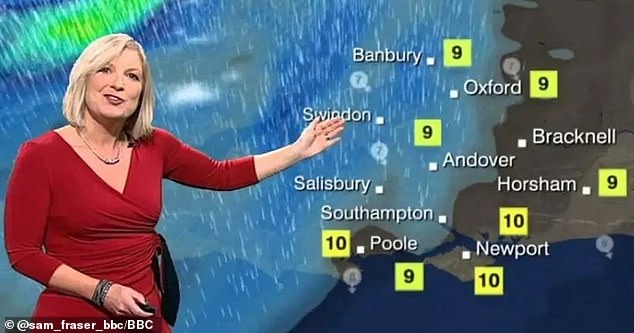
BBC weather presenter Sam Fraser, who has worked for South Today since 2012, slams the stereotype in a new Radio 4 documentary
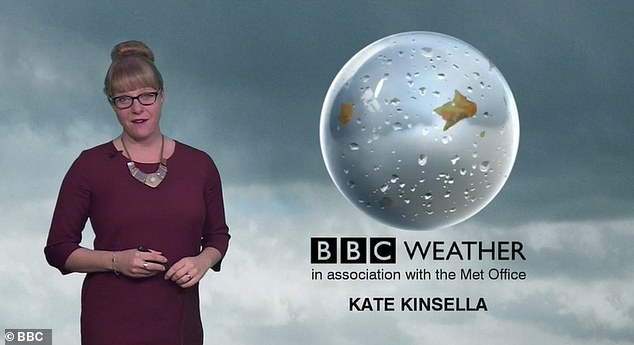
BBC weather presenter Kate Kinsella
She told MailOnline: 'The weather affects our entire lives, the storms we have recently experienced demonstrate this, and these stereotypes undermine our role and we have a responsibility to deliver these messages with authority.
'I hope to be seen as a trusted, respected broadcaster, so when you see yourself objectified and when you hear about these websites, when you're judged solely on your appearance when you've worked very hard to get there, it's difficult.
'I notice that, because we are invited into people's homes, we become regular faces and there is a feeling of over-familiarity, as if they can say anything and that is fine. It might give people the feeling that we are open to criticism or comment.'
Ms Fraser explored the issue which is deeply entrenched in the profession for Radio 4 in a segment called Scorchio! The story of a weather girl.
The title of the documentary refers to the catchphrase of The Fast Show's weather presenter Paula Fisch – played by Caroline Aherene – who said that every forecast is “scorchio!” used to be.
Throughout the 30-minute episode, she delves into the issues she's faced since starting her career – and chats with other big-name weather presenters along the way, including Siân Lloyd and Kate Kinsella.
“I wanted to be taken seriously,” Ms Fraser said. 'After all that time going through pressure charts and learning about climate sub-types, I even built a home weather station, I kind of assumed that would happen.
'But within a fortnight of my bum appearing on screen, he had his own online fan club and was featured on a YouTube channel called Babes of Britain.
“It turns out that the weather girl is one of the most fetishized roles in popular culture.”
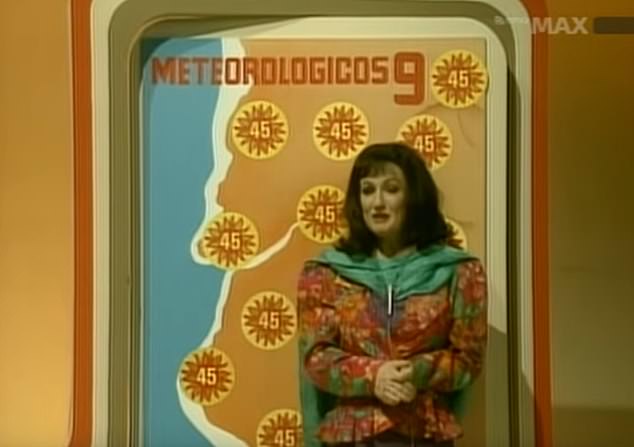
Ms Fraser's Radio 4 show is named after The Fast Show weather presenter Paula Fisch, played by Caroline Aherne, who always used the word 'scorchio'
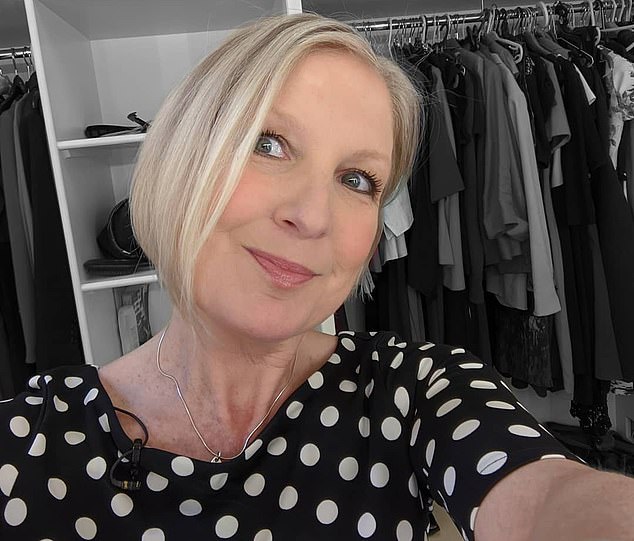
Sam Fraser said she was initially flattered by comments about her appearance, but they quickly became annoying
Sian Lloyd, a weather presenter at ITV who has worked in the business since 1990, said: 'I'm aware that the whole weather girl thing is somewhat demeaning and somewhat trivializes women.
'male adults are never mentioned again – boys are always referred to as men – which implies that we are not yet mature, are not as authoritative as men and may not have the credibility or confidence. Of course we do.'
Ms Quamer said the misogynistic stereotyping could even deter some women from joining the profession.
She added: 'From my own perspective as an ethnic minority and Muslim, I have a sense of responsibility and feel that I am representing a diverse background on air and representing a career for young girls from similar backgrounds.
'Women can be hesitant and this harmful stereotype is a barrier. Women have to convince reluctant parents who worry about how you will be perceived and how this will affect your future.
'Marriage prospects are also a factor if you want to get married in a traditional community. Instead of being seen as a credible broadcaster, stereotyping people discourages people.”
Although most weather presenters land their roles on mainline television due to their experience in meteorology or presenting, it is claimed that appearances played a bigger role than their skills when some individuals were hired for the difficult job.
Sara Thornton, another BBC weather presenter, told Business Insider last year: 'Normally they've been a journalist or a meteorologist, but sometimes you get people who are neither. They were considered just attractive enough to be on TV.
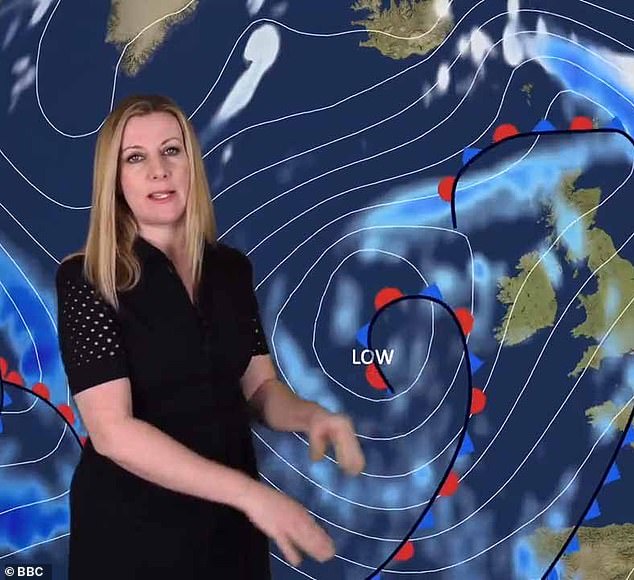
Last year, Sara Thornton – a fellow BBC weather presenter – spoke about the trials and tribulations of being a female weather presenter
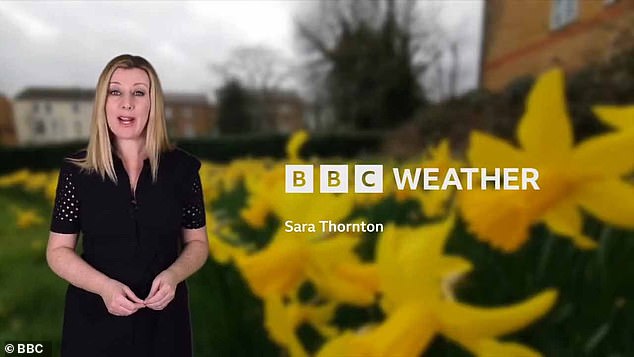
Ms Thornton, who started her training at ITV in 2002, spoke about the obstacles she continues to face during her career, pointing out that her qualifications were often questioned more than those of her male counterparts.
'But it is an extremely difficult job. We have to take an extremely complicated area of science and explain it in a way that the layperson at home will understand and make it relevant to them.”
Ms Quamer added: 'I would like to say this doesn't happen anymore, but that will always be an underlining thing within the television industry generally.
“Times are changing, people are doing their best to look at other factors now, but I think it's a slow process and it's about changing people's attitudes.”
The weather presenter, who started her training at ITV in 2002, spoke about the obstacles she has continued to face during her career, pointing out that her qualifications were often questioned more than those of her male counterparts.
Ms Thornton even claimed that one of her female superiors told her not to take the job, adding that 'it will be the biggest mistake you will ever make'.
The presenter, who now works at the BBC, said there are always comments about the appearance of female weather presenters – and not just on social media. She said people would come and talk candidly about her weight or height on the street.
“That doesn't happen to men,” the presenter added, noting that if you “gained the slightest bit of weight” people would think she was pregnant.
